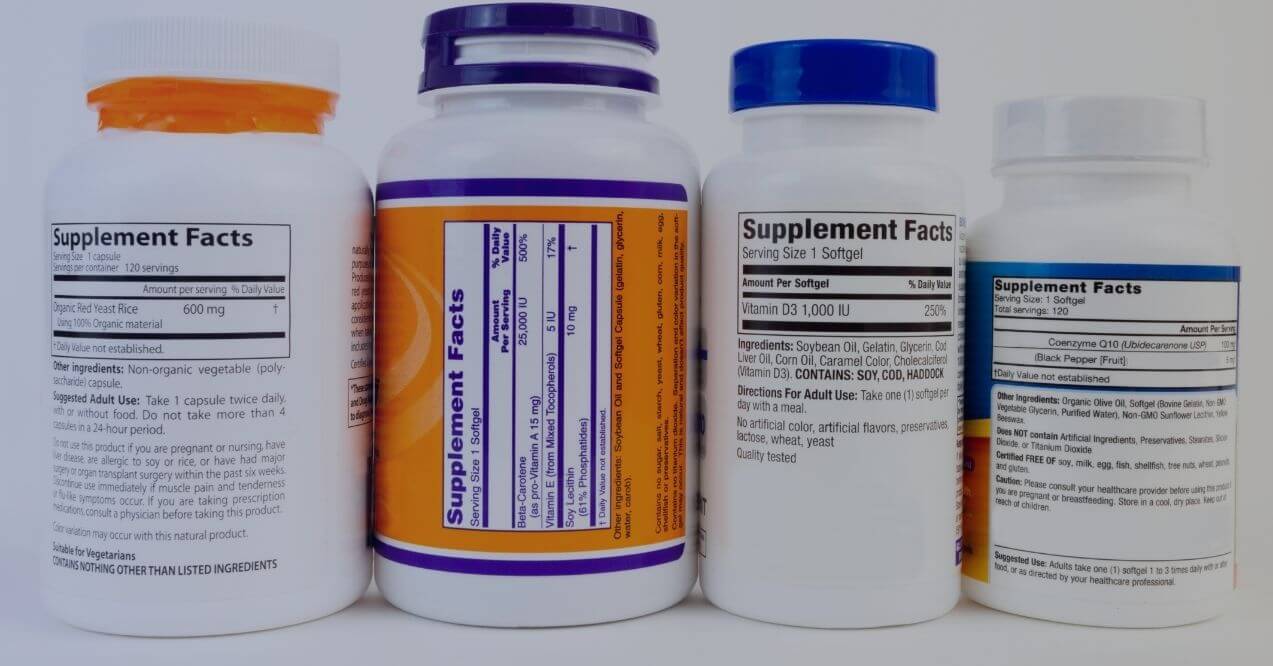The dos and don’ts of dietary supplement labeling


The dietary supplement industry continues to expand rapidly, with the global market projected to exceed $201 billion by 2026. However, with this growth comes increased FDA scrutiny of supplement labeling and marketing claims. In late 2024, the FDA intensified its enforcement actions against non-compliant supplement companies, particularly targeting those making unauthorized claims on social media and e-commerce platforms. This heightened regulatory environment makes understanding the dos and don’ts of dietary-supplement labeling more crucial than ever for business success.
What is dietary supplement labeling?
The FDA’s definition of labeling extends beyond the physical product container. It includes all written, printed, or graphic materials accompanying the supplement – websites, brochures, social media posts, and marketing materials fall under this umbrella. When creating these materials, manufacturers must navigate specific guidelines to avoid costly regulatory issues. This broad interpretation means every piece of content connected to your product must align with FDA requirements.
FDA’s stance on claims
The FDA has sharpened its focus on supplement claims across digital channels, particularly targeting products marketed through e-commerce platforms and social media. No dietary supplement can claim to “diagnose, mitigate, treat, cure or prevent” disease, with special attention now being paid to immunity claims, mental health benefits, and weight loss promises. The FDA’s enforcement scope includes AI-generated marketing content, chatbot responses, and automated email campaigns.
Recent regulatory actions demonstrate the FDA’s commitment to protecting consumers from misleading supplement claims. The agency now employs advanced monitoring tools to track digital marketing claims and has increased coordination with FTC enforcement efforts. For manufacturers, this means maintaining strict compliance isn’t just about avoiding warning letters—it’s about protecting brand reputation in an era of heightened transparency and consumer awareness.
The dos of dietary supplement labeling
Creating compliant supplement labels is a balancing act between effective marketing and regulatory requirements. Success comes from knowing exactly what you can do, rather than focusing only on restrictions. Let’s explore the positive actions that will help your supplement business thrive while maintaining FDA compliance.
1. Do: Use structure-function claims
What they are: Claims about how your product helps normal body functions.
Examples
- ✓ “Supports heart health”
- ✓ “Maintains joint flexibility”
- ✓ “Promotes healthy sleep”
Requirements
- Use words like “maintains,” “supports,” “promotes”
- Talk about normal body functions only
- Keep scientific proof on file
- Add FDA disclaimer to label
2. Do: Use nutrient deficiency claims
What they are: Claims about preventing vitamin or mineral shortages.
Requirements:
- Tell FDA within 30 days
- Include FDA disclaimer
- Focus on proven deficiencies only
- Examples: vitamin D, iron, B12
- Optional: Add QR codes linking to research
3. Do: Use FDA-approved health claims
What they are: Pre-approved claims linking nutrients to health benefits.
Steps to use:
- Find approved claims in CFR 21, 101.72-83
- Choose claims matching your product
- Use exact FDA wording
- Keep proper documentation
4. Do: Include essential label elements
Your label needs these key parts:
Required information:
- “Dietary supplement” identification
- Full ingredient list with amounts
- Clear serving size
- FDA disclaimer
- Your company contact info
- Lot number
- Expiration date
- Allergen warnings (if needed)
5. Do: Keep quality in check
Follow these steps to stay compliant:
Regular tasks:
- Review all labels monthly
- Save proof of claims
- Track label changes
- Get legal review
- Watch all marketing channels
The Don’ts of dietary supplement labeling
Here are the key things to avoid when creating supplement labels and marketing materials:
1. Don’t make disease claims
What they are: Any statements suggesting your product can diagnose, treat, cure, or prevent medical conditions.
Never say your product:
- ✗ “Treats arthritis”
- ✗ “Prevents diabetes”
- ✗ “Cures depression”
- ✗ “Reduces cancer risk”
- ✗ “Helps with ADHD”
Why? Even if you have research backing these benefits, such claims make your supplement an illegal drug in FDA’s eyes.
2. Don’t use prohibited marketing language
Avoid these types of statements:
Medical Claims:
- ✗ “Lowers blood pressure”
- ✗ “Fights infection”
- ✗ “Reduces inflammation”
- ✗ “Works like [medication name]”
- ✗ “Natural alternative to [drug]”
Remember: Even scientific proof doesn’t make these claims legal for supplements.
3. Don’t skip digital compliance
Watch out for these common mistakes on digital platforms:
Social media Don’ts:
- Missing disclaimers in posts
- Allowing wrong claims from influencers
- Ignoring customer comments with claims
- Making stronger claims online
- Using customer testimonials about curing diseases
Website and email Don’ts:
- Hiding disclaimers
- Making different claims across platforms
- Using medical terms in product names
- Skipping legal review of automated emails
- Copying drug product descriptions
Remember: The FDA watches all marketing channels, not just labels. What’s illegal on a label is also illegal on social media, websites, and emails.### Do: Use Permissible Claims Effectively
Building a sustainable supplement brand
Success in the dietary supplement industry requires more than just understanding the dos and don’ts of dietary-supplement labeling—it demands consistent application. As the industry evolves and digital marketing channels multiply, maintaining compliant labeling practices becomes increasingly complex yet crucial for long-term success.
Smart manufacturers recognize that compliance isn’t just about avoiding FDA warning letters; it’s about building consumer trust and brand credibility. By following these guidelines, documenting your processes, and staying current with regulatory changes, you create a foundation for sustainable growth in this competitive market.
The future of supplement marketing lies in balancing innovation with compliance. Those who master this balance—maintaining strict adherence to labeling requirements while effectively communicating product benefits—will find themselves well-positioned for success in 2025 and beyond.
Submit your notification to FDA within 30 days of first marketing the product. This includes any new structure-function claims added to existing products. The notification must include the exact claim language and product label.
No, customer testimonials are considered part of your product labeling. Even if they’re genuine experiences, sharing testimonials about treating diseases violates FDA regulations and can trigger enforcement actions.
You’re responsible for influencer claims about your products. Provide clear guidelines, monitor their content, and take immediate action to correct non-compliant statements. Document all communications and corrections.
References:
Global dietary supplements market 2018-2028 | Statista. (2018). Statista. https://www.statista.com/statistics/1263458/global-dietary-supplements-market/
COMMONLY ASKED QUESTIONS
Advertisement. This site offers health, wellness, fitness and nutritional information and is designed for educational purposes only. You should not rely on this information as a substitute for, nor does it replace, professional medical advice, diagnosis, or treatment. If you have any concerns or questions about your health, you should always consult with a physician or other health-care professional. Do not disregard, avoid or delay obtaining medical or health related advice from your health-care professional because of something you may have read on this site. The use of any information provided on this site is solely at your own risk.










